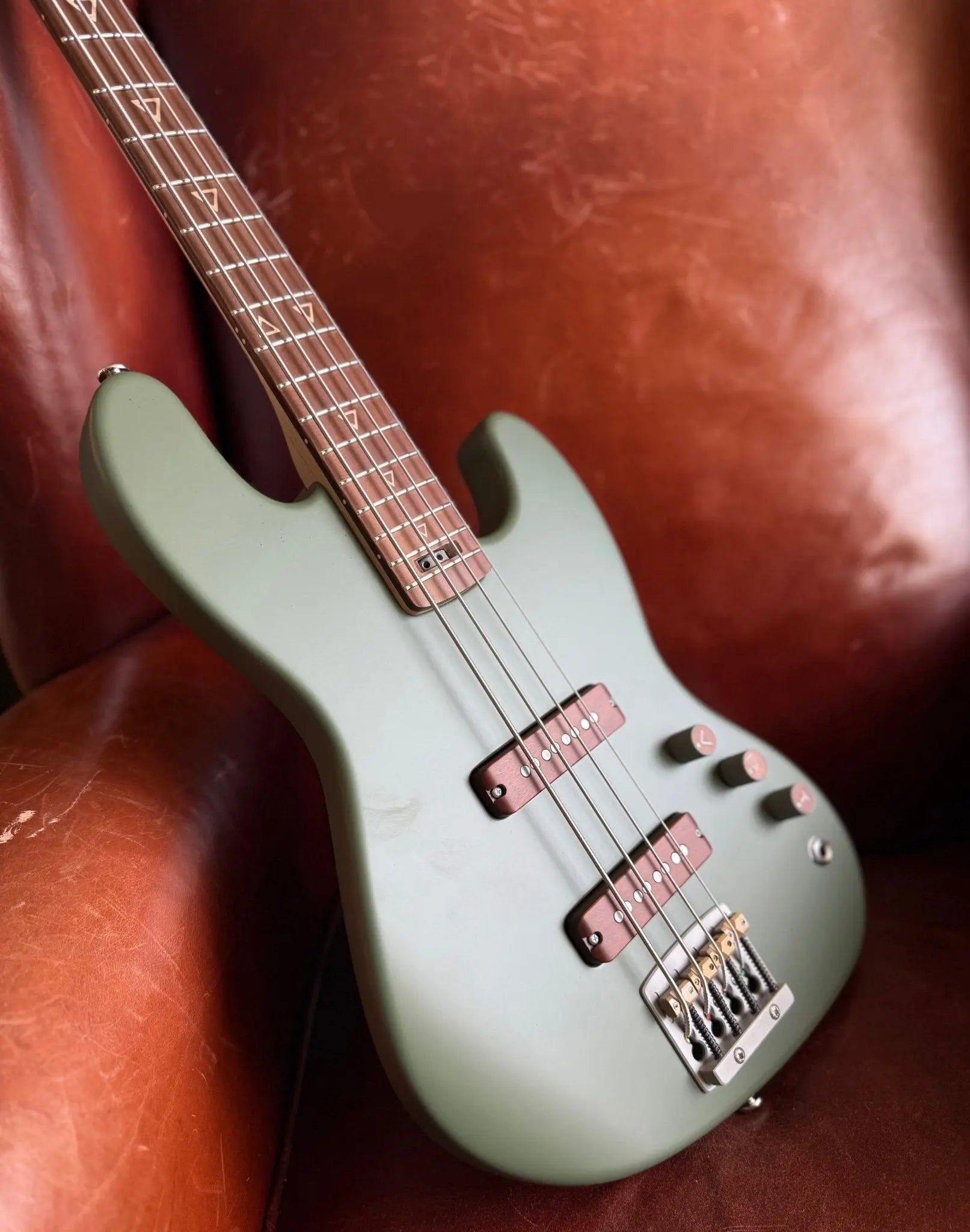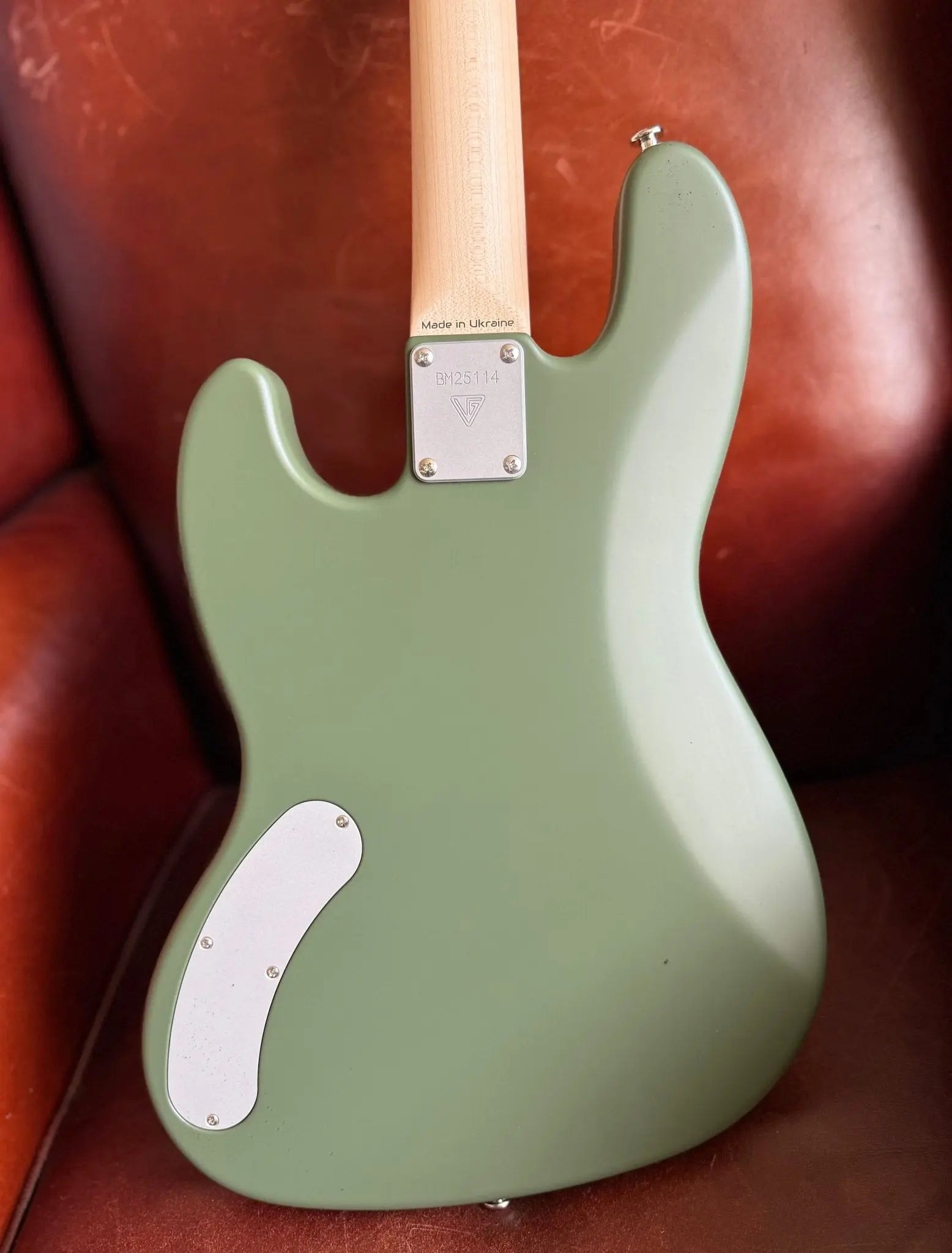The Human Cost Of Building Guitars. Do YOU Know Where Your Guitar Actually Came From?
Concerns regarding human rights and the safety of workers in factories that build guitars and other musical instruments around the world have been increasingly highlighted over the past few decades. These concerns often revolve around labor practices, workplace safety, and ethical standards in countries where many guitars are manufactured, such as China, Indonesia, South Korea, India, and others. Here are the main issues that arise:
1. Poor Working Conditions
-
Long Working Hours and Inadequate Breaks: In many factories, particularly in developing countries, workers may be required to work long hours with minimal breaks. Overtime can be mandatory, and in some cases, it is not adequately compensated. This can lead to worker exhaustion and increased risks of accidents.
-
Unsafe Working Environments: Factories often lack adequate safety measures. Workers may be exposed to hazardous materials (such as glues, paints, and varnishes), machinery, and dust without proper ventilation or personal protective equipment (PPE). Inadequate safety protocols can lead to respiratory problems, skin conditions, and accidents involving machinery.
-
Lack of Proper Training: Workers may not receive adequate training on how to safely handle machinery and hazardous materials. This lack of training increases the risk of accidents and injuries, which can be life-threatening or result in long-term health issues.
2. Low Wages and Wage Theft
-
Underpayment and Wage Theft: Many workers in these factories are paid very low wages that do not meet a living wage standard in their respective countries. In some cases, there are reports of wage theft, where workers are not paid for overtime or have arbitrary deductions taken from their paychecks.
-
Lack of Benefits: Workers often do not receive benefits such as health insurance, paid leave, or retirement plans. This leaves them vulnerable to financial hardship if they become ill or injured and are unable to work.
3. Child Labor and Forced Labor
-
Child Labor: In some factories, there is the use of child labor, where minors are employed in hazardous conditions. Child laborers are especially vulnerable to exploitation as they have limited rights and may not be able to advocate for themselves.
-
Forced Labor: In some instances, there are allegations of forced labor, where workers are coerced into working under threat, or they are unable to leave their jobs due to financial or other forms of coercion. This can occur in countries with weak labor laws or enforcement.
4. Lack of Freedom of Association
-
Restrictions on Forming Unions: In many guitar manufacturing countries, workers may face restrictions or penalties for attempting to form or join unions. Without the ability to organize, workers have limited capacity to negotiate better working conditions, wages, and benefits.
-
Retaliation for Organizing Efforts: Workers who attempt to organize or advocate for their rights may face retaliation, such as being fired, blacklisted, or harassed by factory management or local authorities.
5. Environmental and Health Hazards
-
Exposure to Toxic Substances: Guitar manufacturing involves the use of various chemicals, such as paints, lacquers, adhesives, and solvents. Prolonged exposure to these chemicals without proper protective measures can lead to serious health problems, including respiratory illnesses, skin conditions, and even long-term diseases like cancer.
-
Waste Disposal and Environmental Impact: Factories often dispose of waste materials improperly, which can have a negative impact on local communities and the environment. Pollutants can contaminate air, water, and soil, affecting both factory workers and nearby residents.
6. Lack of Transparency and Accountability
-
Opaque Supply Chains: The guitar manufacturing industry often has complex and opaque supply chains, making it difficult to trace where materials come from and how workers are treated at each stage of production. This lack of transparency allows poor practices to persist without scrutiny.
-
Lack of Third-Party Audits: Not all companies ensure that their factories undergo regular, independent audits to verify compliance with labor standards and worker safety regulations. Even when audits are conducted, they may be superficial or fail to capture the full extent of labor abuses.
7. Worker Exploitation in Subcontracted Factories
- Use of Subcontractors: Many larger brands outsource production to subcontractors, who may not adhere to the same ethical standards or labor laws. This leads to an environment where the main brand may be unaware of—or turn a blind eye to—substandard conditions in subcontracted factories.
Efforts to Improve Conditions
-
Corporate Social Responsibility (CSR) Programs: Some guitar brands and manufacturers have started to implement CSR programs to ensure ethical labor practices, including safer working conditions, fair wages, and transparency in supply chains.
-
Third-Party Certifications: Organizations like the Fair Labor Association (FLA) or Worldwide Responsible Accredited Production (WRAP) offer certification for factories that comply with strict labor and environmental standards. Some guitar brands strive to have their factories certified to show their commitment to ethical practices.
-
Consumer Awareness and Advocacy: Increasingly, consumers are becoming aware of these issues and are advocating for better practices by demanding more transparency and ethical standards from brands. This pressure has led some companies to improve their labor practices and become more transparent.
Conclusion
Human rights and worker safety concerns in guitar manufacturing are serious issues that vary widely depending on the country, factory, and brand involved. To ensure ethical practices, it's essential for both consumers and brands to demand transparency, accountability, and adherence to fair labor standards.






























![Gordon Smith GS2 Deluxe Export 2019 [used] A1 Condition - Richards Guitars Of Stratford Upon Avon](http://rguitars.co.uk/cdn/shop/files/gordon-smith-gs2-deluxe-export-2019-used-a1-condition-4323398.jpg?v=1772186690&width=1072)
![Gordon Smith GS2 Deluxe Export 2019 [used] A1 Condition - Richards Guitars Of Stratford Upon Avon](http://rguitars.co.uk/cdn/shop/files/gordon-smith-gs2-deluxe-export-2019-used-a1-condition-9502671.jpg?v=1772186690&width=899)


![G&L USA Made ASAT - late 80s/early 90s [Used] - Richards Guitars Of Stratford Upon Avon](http://rguitars.co.uk/cdn/shop/files/gl-usa-made-asat-late-80searly-90s-used-1091932.jpg?v=1772186325&width=1378)
![G&L USA Made ASAT - late 80s/early 90s [Used] - Richards Guitars Of Stratford Upon Avon](http://rguitars.co.uk/cdn/shop/files/gl-usa-made-asat-late-80searly-90s-used-7964817.jpg?v=1772186327&width=1828)
![Eastman AC630 - SB [Used] - Richards Guitars Of Stratford Upon Avon](http://rguitars.co.uk/cdn/shop/files/eastman-ac630-sb-used-5743157.jpg?v=1760421581&width=1080)
![Eastman AC630 - SB [Used] - Richards Guitars Of Stratford Upon Avon](http://rguitars.co.uk/cdn/shop/files/eastman-ac630-sb-used-2967411.jpg?v=1760421593&width=1569)
![Fender American Standard Telecaster 2012 - Natural [Used] guitar for sale uk](http://rguitars.co.uk/cdn/shop/files/fender-american-standard-telecaster-2012-natural-used-4379607.jpg?v=1760421498&width=1614)
![Fender American Standard Telecaster 2012 - Natural [Used] guitar for sale uk](http://rguitars.co.uk/cdn/shop/files/fender-american-standard-telecaster-2012-natural-used-1429240.jpg?v=1760421497&width=1512)
![Fender American Professional II Jazzmaster - Dark Night [Used] guitar for sale uk](http://rguitars.co.uk/cdn/shop/files/fender-american-professional-ii-jazzmaster-dark-night-used-6840250.jpg?v=1760421430&width=1602)
![Fender American Professional II Jazzmaster - Dark Night [Used] guitar for sale uk](http://rguitars.co.uk/cdn/shop/files/fender-american-professional-ii-jazzmaster-dark-night-used-4375294.jpg?v=1760421432&width=1476)
![Guild Brian May "Red Special" Limited Edition - early 90s - One of 1000 [Used] guitar for sale uk](http://rguitars.co.uk/cdn/shop/files/guild-brian-may-red-special-limited-edition-early-90s-one-of-1000-used-6139630.jpg?v=1760421357&width=1492)
![Guild Brian May "Red Special" Limited Edition - early 90s - One of 1000 [Used] guitar for sale uk](http://rguitars.co.uk/cdn/shop/files/guild-brian-may-red-special-limited-edition-early-90s-one-of-1000-used-9797150.jpg?v=1760421365&width=1644)






























Leave a comment
This site is protected by hCaptcha and the hCaptcha Privacy Policy and Terms of Service apply.